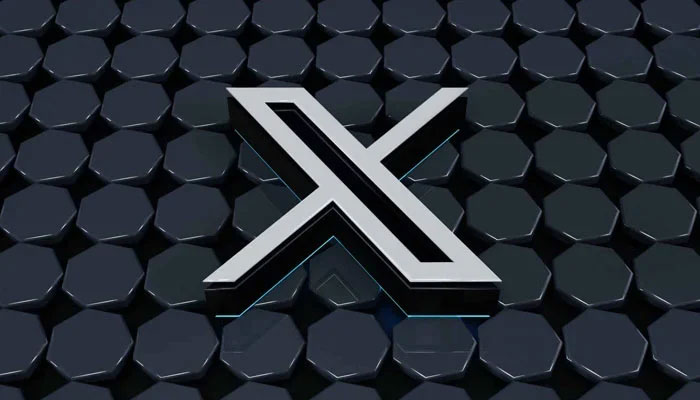Tweetless in Pakistan
For the first month, everyone in authority pretended to be clueless about it
Almost three months have passed since the ban on social media platform X (formerly Twitter) in Pakistan. For the first month, everyone in authority pretended to be clueless about it. But last month, the interior ministry finally informed the Islamabad High Court (IHC) that the ban on X was necessary following its failure to address concerns regarding its “misuse”. The interior ministry said that the “failure of Twitter/X to adhere to the lawful directives of the government of Pakistan and address concerns regarding the misuse of its platform necessitated the imposition of a ban”.
In the last three months, we have heard government functionaries talk about fake news, propaganda and malicious content on X and now it has become quite clear that the state is in no mood to lift this ban. In fact, digital activists are concerned that the government is going to bring in more laws for social media, meaning thereby that the state will try to control what is being said on social media. This is not just about regulation. The same was said when the Prevention of Electronic Crimes Act (Peca) was enacted – ironically by the PML-N government back in 2016. Civil society and digital rights activists had warned even back then that Peca would be used against dissent and would not be a tool for victims. Now that there is another attempt at bringing more laws related to social media, rights groups have warned again that the government will bring in more draconian laws rather than doing anything good and meaningful regarding fake news or disinformation campaigns on social media.
The fact is that banning X is an extreme step in an era of social media. This is also a form of censorship. We were informed by the interior ministry that “hostile elements operating on Twitter/X have nefarious intentions to create an environment of chaos and instability, with the ultimate goal of destabilising the country and plunging it into some form of anarchy” but should this translate into an outright ban on X? And how can this issue be resolved? One answer is that we need less censorship and stronger defamation laws, not draconian legislation or outright bans. In this day and age, it is quite bizarre to claim that Pakistan’s national security is under threat because of a social media platform. If it is such a threat, then why is it that all politicians, government officials – including the prime minister of Pakistan – continue to use X and tweet both in Urdu and English, for the local and international audience. If this platform is indeed playing a part in ‘destabilizing’ the country, then no government official should have a presence there. Are we in Pakistan doomed to live in a regime where our freedoms are taken away because someone thinks that the only way to fight one party’s propaganda is by banning X? If slander, defamation or inflammatory comments were the problem, it would have been simpler to just go after those comments. Why did the entire site have to be closed to the people? Fake news and false claims should be addressed without compromising the rights of those who have nothing to do with them and those working hard to dispel them, all of whom share a site as large as ‘X’. Such widespread disruptions defang those with the knowledge and expertise to find and disseminate the truth, while fuelling perceptions that there must indeed be something to hide and a conspiracy in the works.
-
 SpaceX Launches Another Batch Of Satellites From Cape Canaveral During Late-night Mission On Saturday
SpaceX Launches Another Batch Of Satellites From Cape Canaveral During Late-night Mission On Saturday -
 Princess Beatrice, Eugenie Get Pulled Into Parents’ Epstein Row: ‘At Least Stop Clinging!’
Princess Beatrice, Eugenie Get Pulled Into Parents’ Epstein Row: ‘At Least Stop Clinging!’ -
 Inside Kim Kardashian's Brain Aneurysm Diagnosis
Inside Kim Kardashian's Brain Aneurysm Diagnosis -
 Farmers Turn Down Millions As AI Data Centres Target Rural Land
Farmers Turn Down Millions As AI Data Centres Target Rural Land -
 Trump Announces A Rise In Global Tariffs To 15% In Response To Court Ruling, As Trade Tensions Intensify
Trump Announces A Rise In Global Tariffs To 15% In Response To Court Ruling, As Trade Tensions Intensify -
 Chappell Roan Explains Fame's Effect On Mental Health: 'I Might Quit'
Chappell Roan Explains Fame's Effect On Mental Health: 'I Might Quit' -
 AI Processes Medical Data Faster Than Human Teams, Research Finds
AI Processes Medical Data Faster Than Human Teams, Research Finds -
 Sarah Ferguson’s Friend Exposes How She’s Been Since Andrew Mountbatten-Windsor’s Release
Sarah Ferguson’s Friend Exposes How She’s Been Since Andrew Mountbatten-Windsor’s Release -
 Jelly Roll Explains Living With 'severe Depression'
Jelly Roll Explains Living With 'severe Depression' -
 Charli XCX Applauds Dave Grohl’s 'abstract' Spin On Viral ‘Apple’ Dance
Charli XCX Applauds Dave Grohl’s 'abstract' Spin On Viral ‘Apple’ Dance -
 Anna Sawai Opens Up On Portraying Yoko Ono In Beatles Film Series
Anna Sawai Opens Up On Portraying Yoko Ono In Beatles Film Series -
 Eric Dane's Wife Rebecca Gayheart Shares Family Memories Of Late Actor After ALS Death
Eric Dane's Wife Rebecca Gayheart Shares Family Memories Of Late Actor After ALS Death -
 Palace Wants To ‘draw A Line’ Under Andrew Issue: ‘Tried And Convicted’
Palace Wants To ‘draw A Line’ Under Andrew Issue: ‘Tried And Convicted’ -
 Eric Dane's Girlfriend Janell Shirtcliff Pays Him Emotional Tribute After ALS Death
Eric Dane's Girlfriend Janell Shirtcliff Pays Him Emotional Tribute After ALS Death -
 King Charles Faces ‘stuff Of The Nightmares’ Over Jarring Issue
King Charles Faces ‘stuff Of The Nightmares’ Over Jarring Issue -
 Sarah Ferguson Has ‘no Remorse’ Over Jeffrey Epstein Friendship
Sarah Ferguson Has ‘no Remorse’ Over Jeffrey Epstein Friendship




